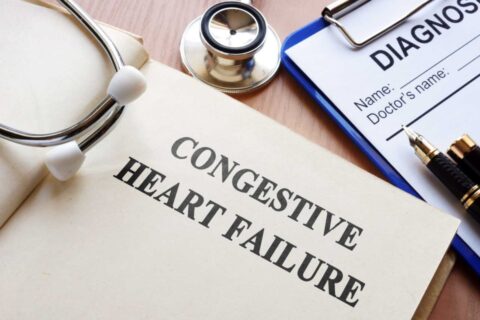Understanding Heart Disease: Causes, Symptoms, and Prevention
Heart Disease is a term that encompasses any issues affecting the heart. Heart disease can mean many types of heart problems. According to the CDC, heart disease is the leading cause of death in the United States. In fact, one in every four deaths in the US is caused by heart disease. Also called cardiovascular disease, there are many types of heart issues, and each has its symptoms and risk factors.

What are the Types of Heart Disease?
- Coronary Artery Disease
The most common heart disease is coronary artery disease, which occurs when the coronary artery becomes partially or fully blocked. The coronary artery provides blood to the heart, and when it becomes blocked, the culprit is generally plaque made from cholesterol and other substances. The accumulation of plaque in the arteries is called atherosclerosis. As the plaque builds up and the blood supply to the heart is reduced, the heart muscle becomes fatigued, and there is a risk of heart failure. If plaque continues to form, a complete blockage could occur, and this can cause a heart attack. - Angina
Angina is chest pain that is caused because of a deficiency of blood pumped to the heart. - Heart Attacks
Heart attacks, also called myocardial infarctions, are caused by a decreased or blocked flow of blood to the myocardium, the layer responsible for the contracting function of the cardiac pump. - Heart Failure
This occurs when the heart is unable to pump enough blood to meet the body’s needs. The term “heart failure” may be somewhat of a misnomer. An individual with heart failure still has a working heart; it just means that the heart is not working at 100%. Some causes of heart failure are high blood pressure, CAD, arrhythmia, or other issues. - Arrhythmia
Arrhythmia is an irregular heartbeat. This could be something that an individual is born with, or it could be developed over time. This could be a secondary issue caused by another heart issue, or it could just develop on its own. - Pericardial Disease
The sac that surrounds the heart can become inflamed or infected. This is called pericardial disease. - Valvular Heart Disease
Any disease that affects one of the heart’s four valves is known as heart valve disease. This can cause the valve to malfunction, leak, or become blocked.
What are the Symptoms of Heart Disease?
Symptoms of heart disease will vary based on what type of heart disease an individual has. Some symptoms of heart disease may include but are not limited to:
- Chest Pain (Angina)
- Difficulty Breathing
- Neck Pain
- Heartburn
- Nausea or vomiting
- Swelling in the extremities, especially in the lower body
- Inability to handle exercise
- Becoming easily fatigued
- Dizziness
- Shortness of breath
What are the Early Warning Signs of Heart Disease?
Some of the early warning signs of heart disease are the same as the symptoms of heart disease. Other signs to look for include:
- Coughing and Wheezing
- Lower Body Edema
- Irregular Breathing
- In children – pale gray or blue skin or lips (cyanosis)
How do I Prevent Cardiovascular Disease?
There are several ways to help prevent cardiovascular disease. If you are concerned about heart issues, see a doctor. You can also make lifestyle changes that will help.
- Maintain a Healthy Weight
A healthy weight is essential for happy heart health. When the heart must pump more to maintain more body mass, it can become more easily fatigued. - Try to Exercise at Least 30 Minutes a Day
Exercise is the key to handling most health issues. The heart is a muscle, and it needs exercise just like the rest of the body’s muscles. - Take Steps to Reduce Stress
Stress can cause problems in multiple body systems, particularly the heart. To reduce your stress levels, practice deep breathing, yoga, counting, and anything else that helps you relax. - Cultivate a Positive Relationship with Food
Make sure you are making good choices when managing your diet. Soluble fiber, which can reduce cholesterol, is found in many fruits and vegetables. This type of choice is an example of one that promotes great heart health. - Avoid Tobacco
Tobacco products don’t have any positive effects on the body. The best choice is complete cessation of smoking. - Work to Manage Other Conditions Like Diabetes and High Cholesterol
Many of these issues can lead to heart disease. It’s best to manage any health conditions you may have.
After Treatment Precautions
Some treatments include lifestyle changes, surgeries, medications, and cardiac rehab programs. Your doctor may recommend any of these post-treatment options. Some procedures take only a few days to recover from, while others may require 6-12 weeks of rest.
Conclusion
A healthy heart is the key to a healthy life. It is essential to educate yourself in any heart conditions you may be at risk for so that you can take care of any problems that arise. However, the best ways to maintain good heart health include a healthy diet, regular exercise, and regularly scheduled doctor visits.
Contact Us for Heart Disease Treatment
If you have concerns about your heart or just want to get a check-up, Complete Cardiology Care of Sugar Land, Texas, can help. Dr. Yassir Sonbol has over 15 years of experience and can help skillfully treat any heart issues. Whether you require medication or simply a lifestyle change, Dr. Sonbol is skilled at diagnosing every heart condition, from high blood pressure to arrhythmia to high cholesterol. Contact our excellent team will guide you on your way to a healthy lifestyle and a healthy heart.


